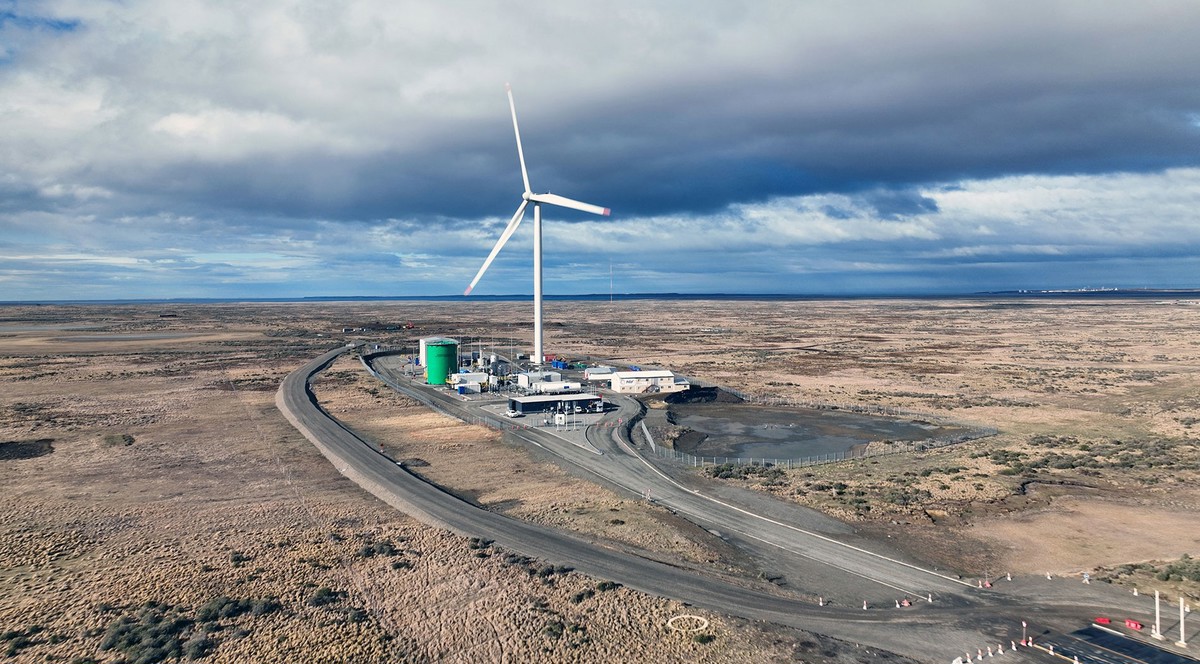HIF Global plans e-methanol projects to serve shipping and other markets
US-based renewable fuel producer HIF Global (HIF) has announced plans to set up e-methanol plants in the US, Australia, Chile and Uruguay.
 PHOTO: HIF Global's e-fuel facility in Chile. MAN Energy Solutions
PHOTO: HIF Global's e-fuel facility in Chile. MAN Energy Solutions
A part or the entire output of e-methanol from these facilities is expected to be exported to Japan, where it will be used as bunker fuel in the shipping sector or be used in other industries, the company says.
E-methanol, or synthetic methanol, is produced by combining 100% biogenic carbon dioxide (CO2) with green hydrogen. Biogenic CO2 is typically captured through bioenergy with carbon capture and storage (BECCS) or direct air capture (DAC). It can cut CO2 emissions by 65-95% on a well-to-wake basis compared to fossil fuels, according to the Methanol Institute.
HIF currently operates an e-methanol plant in Chile, primarily serving the road sector. It plans to expand the plant's production capacity to cater to the shipping sector. Additionally, the company has outlined plans for e-methanol projects in the US, Australia and Uruguay.
Construction of its e-methanol plant in Matagorda County in Texas, US is scheduled to start this year. The plant is expected to produce 1.4 million mt/year of e-methanol by 2027 using 2 million mt/year of captured CO2, according to the company website. HIF plans to use wind energy for green hydrogen production at this facility. However, it has not disclosed the source of CO2.
The company plans to begin construction of its 700,000 mt/year e-methanol production plant in Payasandu, Uruguay in 2025. It aims to capture up to 900,000 mt/year of CO2 from biomass, industrial sources or DAC to produce e-methanol at this facility.
Its plant in Tasmania, Australia will be designed to produce 210,000 mt/year of e-methanol from 290,000 mt/year of captured CO2. This facility will tap into renewable energy from the local grid to power electrolysers for green hydrogen production. CO2 will be captured from Tasmanian plantation biomass and combined with green hydrogen through synthesis. Construction is slated to begin in 2028.
HIF has secured around $200 million in funding from multiple Japanese sources for these projects. Investors include the Japanese government’s Japan Organization for Metals and Energy Security (JOGMEC), the petroleum company Idemitsu Kosan and the shipping major Mitsui O.S.K. Lines (MOL).
By Konica Bhatt
Please get in touch with comments or additional info to news@engine.online






